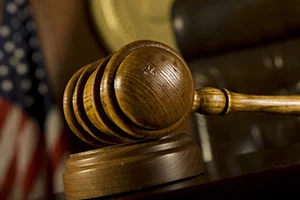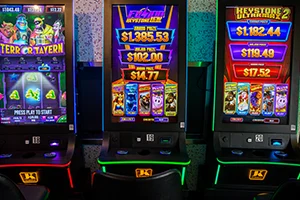 Pennsylvania’s Supreme Court is set to decide on the destiny of the so-called skill-based electronic game terminals (EGTs). Lawmakers have not found common ground regarding their regulation and taxation. EGTs have become a common sight to behold across bars, convenience stores, and gas stations in the state. The highest court will therefore decide if the gaming devices are gambling machines, and, consequently, if their operation must be discontinued.
Pennsylvania’s Supreme Court is set to decide on the destiny of the so-called skill-based electronic game terminals (EGTs). Lawmakers have not found common ground regarding their regulation and taxation. EGTs have become a common sight to behold across bars, convenience stores, and gas stations in the state. The highest court will therefore decide if the gaming devices are gambling machines, and, consequently, if their operation must be discontinued.
These games enable players to reverse losses by relying on their skills, such as memory or attentiveness.
The battle over their legality has been continuing for years, with the state on one side, arguing they are unlicensed gambling machines, and manufacturers and retailers, on the other side, maintaining they feature an element of skill, which distinguishes them from typical casino games. Consequently, they must not be subjected to gambling laws.
As reported by Fox43, Jeffrey Rosenthal, a lawyer with extensive experience at Blank Rome LLP, said the high court’s decision to take the case is noteworthy progress and could set clear guidelines for the interpretation of such machines.
As CasinoGamesPro recently reported, similar debates were taking place in Missouri, where only land-based gambling is lawful.
Meanwhile, Pennsylvania lawmakers are considering whether to regulate and tax the devices ahead of the approaching fiscal year-end. Although the exact number of EGTs in Pennsylvania is unknown, estimations by the American Gaming Association (AGA) point to nearly 67,000 devices.
Casino and Lottery Operators Oppose Skill-Based Games
 Casino and lottery operators in Pennsylvania oppose the skill-based terminals, stating they are in a disadvantageous position, considering the taxes they are subjected to. Pennsylvania casinos pay approximately a 54% tax on their revenue from slot machines.
Casino and lottery operators in Pennsylvania oppose the skill-based terminals, stating they are in a disadvantageous position, considering the taxes they are subjected to. Pennsylvania casinos pay approximately a 54% tax on their revenue from slot machines.
Lori Dumas, a Commonwealth Court Judge, examined a similar case in December last year and ruled that the devices are not associated with gambling.
Meanwhile, producers and retailers of skill-based machines are urging lawmakers to regulate them, so that they stay protected from confiscation. In a brief to the Supreme Court, their lawyers have been insisting upon clarifying their status: “These bills show the future of skill games is a public policy debate for the General Assembly, and not for this court.”
In its latest press release, the Pennsylvania Gaming Control Board reported the gaming revenue for May 2024. Proceeds generated by casinos, fantasy contest games, and VGTs amounted to $520,997,868, up by 8.68% compared to May 2023. While slots revenue from land-based gambling venues for May 2024 amounted to $214,133,424, the revenue from their online counterparts reached $126,899,919. The tax revenue collected from iGaming in May 2024 equaled $76,063,660. The combined tax revenue collected from all forms of gambling stood at $216,300,232.